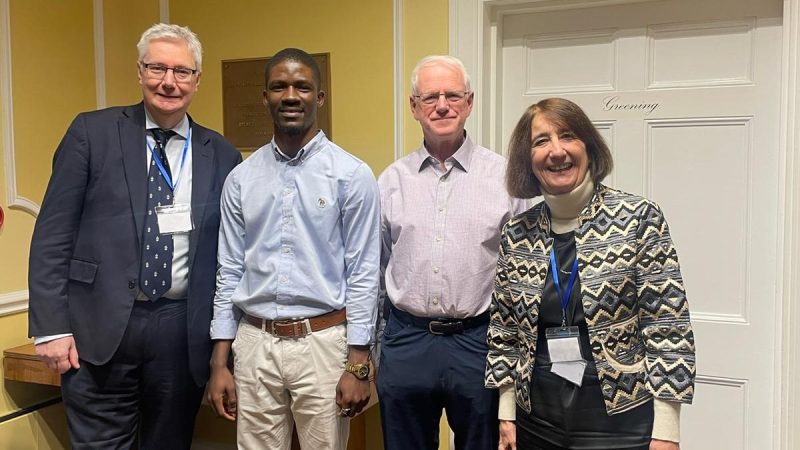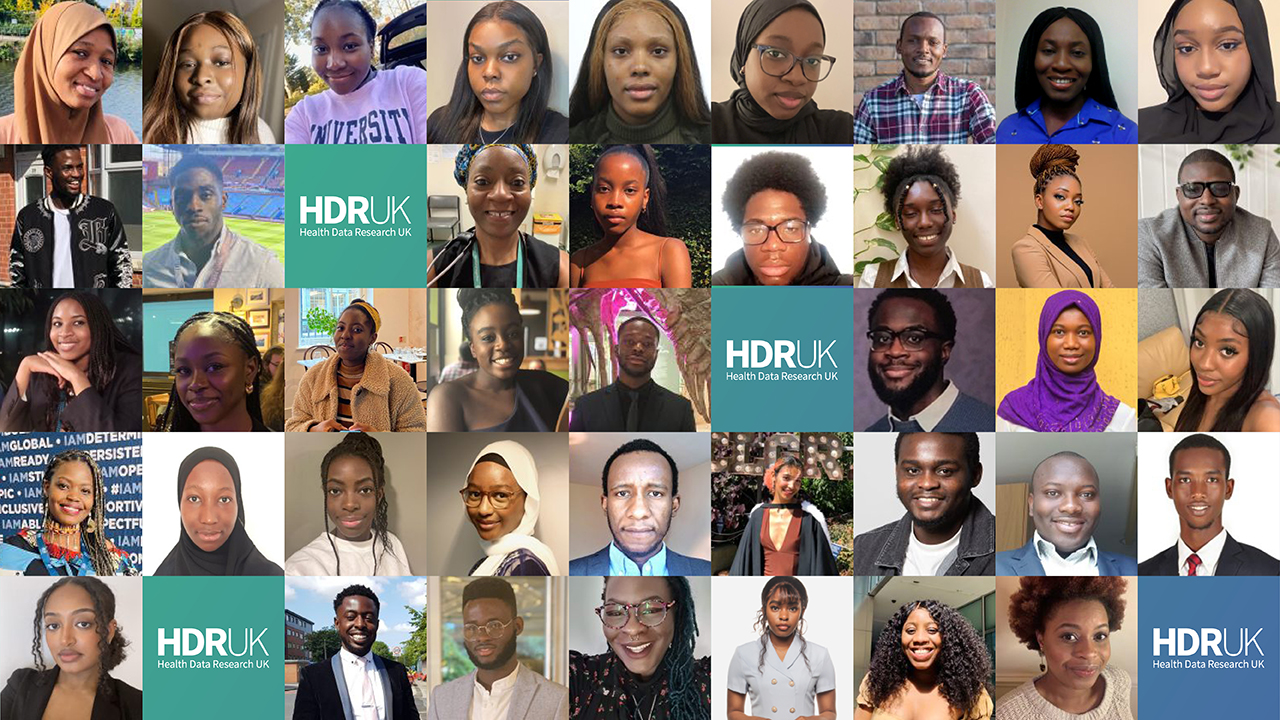Presenting on the potential of health data science in medical schools
21 December 2023 | Author: Adenrele Adekoya, Intern at Medical Schools Council
Adenrele Adekoya completed his Black Internship Programme at HDR UK in 2023. As part of the internship he developed the Survey of Data Science in UK Medical School Curricula and produced a report. In this blog, we spoke to Adenrele about his experience presenting the findings to the Medical Schools Council.

What were your recommendations following your ‘Survey of Data Science in UK Medical School Curricula‘?
My recommendations were centred around improving the level of data science in the learning outcomes of the medical school curriculum.
I recommended training medical students on data science elements beyond clinical trials and statistics to include the use of big data, artificial intelligence, virtual reality, and similar new elements. I suggested that a central data science learning outcome be adopted across all medical schools in the UK while still retaining interschool flexibility. This was to curtail the inconsistencies on data science teachings across different schools across the UK, and to give students similar exposure to data science. I also recommended that online training platforms, bootcamps, and virtual learning environments be leveraged to meet students’ data science needs without making wholesome changes to the curriculum, as it was clear that students expected to be learning more data science.
How did you find the experience of presenting your findings to the Medical Schools Council?
I enjoyed every bit of the experience. It was an excellent experience being in that room and speaking to the leaders of medical schools across the UK. It was definitely one of the most important rooms I have ever had to present or interact with, and truly, the outcome couldn’t have been any better. I was really proud of how it turned out. It was a welcoming atmosphere, and I was talking on a topic I am passionate about which definitely helped kill any nerve. I really enjoyed speaking to the audience, the keen attention, and the listening ears, knowing that the future of medicine is being influenced positively by the amazing piece of work we have done was huge and satisfying.
It was very interesting to also listen to Prof Sir Aziz Sheikh and Dr John Halamka, who are both world leaders on the subject of health data make a strong case for more data science in medical school curriculum citing a lot of relevant instances, which tied in really well into the work I had done.
Lastly, my experience also further highlights the importance of the Health Data Science Black Internship Programme and the good work HDR UK is doing, aimed at inclusion and representation, as I was the only black person in the room, which was one of the key reasons behind the internship, to connect competent minority groups with deserving opportunities.
How have your findings and recommendations been received? Did you find particular challenges or opportunities were highlighted?
My findings and recommendations have been received very well, more than I had anticipated. It is very clear that the medical school and HDR UK are invested and very interested in the future of medical practice in the UK, and it is also evident that efforts are ongoing to stay ahead of the curve, which explains the level of attention this piece of work has received. The consensus has been that there is a big opportunity to improve healthcare in this digital age where there are abundant tools and data waiting to be maximised. The potential is obvious, and I genuinely think that the Medical Schools Council intends to improve the level of data science in the medical school curriculum, to make sure that this said potential is realised.
There are of course challenges around integrating it into the medical school curriculum, but with careful deliberation and strategic planning, it will be successfully carried out.
What would you like to see happen next with data science in Medical Schools?
I would love to see medical students having a good knowledge of data, its benefits, the ethical and legal considerations, and how to use it. I would love to see medical students get trained in data science beyond statistics and clinical trials, to see them understanding big data and being able to carry out basic data analysis to derive insights. Tools like decision support systems are evolving, new additions are being made, talks on generative AI, all of these just emphasise the need to be deliberate about upskilling medical professionals. In this new age, patient care will require more than the traditional patient-doctor dynamic. There will be more input from patients and more output from doctors, it is important that our doctors know what to do with the enormous data at their disposal.
Our Health Data Science Black Internship Programme offers opportunities to gain experience in health data science.



